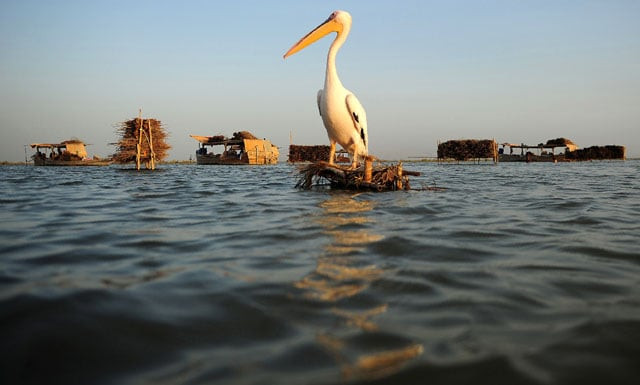44 houseboats restored at last floating village
Project has also gifted two newly built Galiyo houseboats Sohni and Laal to the Mohanna community

Pakistan's last surviving houseboat village on Manchar Lake, near Sehwan in Sindh, has been significantly restored in a landmark cultural preservation project.
A total of 44 traditional houseboats, known as Galiyo, and the smaller fishing boats known as Hurro have been carefully restored as part of a 20-month initiative led by two academics from NED University's Department of Architecture and Planning.
Currently, around 370 members of the Mohanna community — descendants of two brothersreside on these traditional Galiyos.
Funded by the UK Government's Cultural Protection Fund and implemented in partnership with the British Council, the project has also gifted two newly built Galiyo houseboats — Sohni and Laal — to the Mohanna community.
Named after characters from Sindhi folklore, these houseboats will support the launch of "Manchar Lake Mohannas Tours", a community-led tourism initiative featuring birdwatching, cultural games, local cuisine, heritage experiences and other community endeavors.
Historically a few decades ago, hundreds of houseboats floated along the Indus River from southern Punjab to interior Sindh. Today, only a few dozen remain primarily due to pollution, environmental changes, and the devastating impact of the Right Bank Outfall Drain (RBOD).
The RBOD was designed to carry saline, toxic, and wastewater, mostly from irrigation drainage, from the right bank of the Indus River safely into the Arabian Sea.




















COMMENTS
Comments are moderated and generally will be posted if they are on-topic and not abusive.
For more information, please see our Comments FAQ